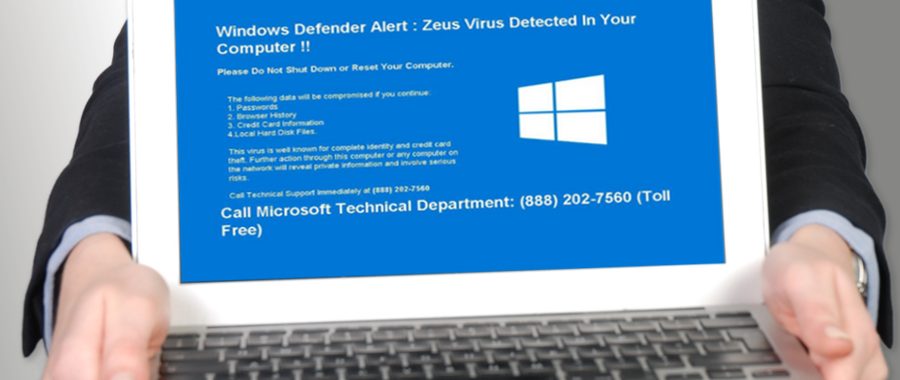Tech support scammers send fake alerts about Zeus infection
Zeus Trojan is one of the oldest banking Trojans that started its career in July 2007. Malware has already affected hundreds of thousands of companies, banks, and governmental institutions. Nevertheless, criminals ended their career in 2011; their followers continued spreading new variants of the Trojan.
Meanwhile, scammers, who lack of imagination or creativity, took the name of the trojan in their illegal projects. The name of the banking Trojan is widely used in various technical support scams.
Undoubtedly, the purpose of such scams is to scare people and make them call to fake tech support line where “certified technicians” are willing to help to clean a virus from the computer.
Examples of tech support scams
Getting infecting with Zeus is a terrifying experience. Scammers are aware of human psychology and fear of catching computer infections. Thus, the name of the dangerous banking Trojan should help to commit another cyber crime.
Such scams usually deliver messages in the browser’s window, such as “Windows Defender Alert: Zeus Virus”, “Windows Detected ZEUS Virus” or “You Have A ZEUS Virus.” All these fake alerts state the same – your computer is infected; call the provided number.
However, none of these messages are true. Only antivirus program installed on your PC can inform about malware attack in a program notification window.
All other alerts that appear on the browser are fake, and most probably, created by cyber criminals who are willing to take control over your computer, obtain your personal information or sell a useless software.
Signs of the real Zeus attack
If you ever find yourself on the website that informs about dangerous banking Trojan residing on the system, you should not take any spontaneous actions. Especially, do not grab your phone to call the provided number.
As we have already mentioned, online security alerts are fake. What is more, usually crooks introduce themselves as Microsoft technicians. However, Microsoft does not have a phone support line. Thus, it’s the main sign that you have been scammed.
The real Zeus malware attack is followed by slow computer’s performance, disabled security software, unknown system errors, increased amount of aggressive online ads, and of course, suspicious financial transactions or even empty bank account.
We want to remind that once you suspect that your computer is infected, you should run a full system scan with an updated security tool immediately.

